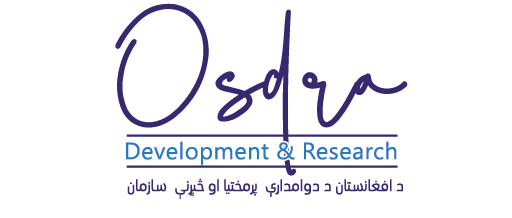
OSDRA
Our Impact
OSDRA’s commitment to aligning its work with the United Nations Sustainable Development Goals (SDGs) is making a significant impact on the achievement of these goals in Afghanistan. Through its work in demining, research and assessment, livelihood and social development, counselling and legal assistance, health and hygiene, human rights, disaster risk reduction, economic development, peace building, environmental sustainability, and management, OSDRA is contributing to multiple SDGs, including peace, justice, strong institutions, reduced inequalities, no poverty, decent work and economic growth, quality education, good health and well-being, clean water and sanitation, sustainable cities and communities, climate action, affordable and clean energy, life on land, industry, innovation, and infrastructure.
OSDRA’s counselling and legal assistance consultation work is promoting peace, justice, and strong institutions by providing basic legal and citizens’ rights adoption, legal assistance and anti-discriminatory consultation, consolation and psychological therapy, awareness and advocacy, capacity building and legal rights acknowledgement. Its health and hygiene initiatives are helping to achieve zero hunger, good health and well-being, clean water and sanitation, and sustainable cities and communities.
Through its human rights work, OSDRA is promoting gender equality, reducing inequalities, and ensuring peace, justice, and strong institutions by empowering women, protecting children, and promoting skill development for persons with disabilities. Its disaster risk reduction work is contributing to sustainable cities and communities and climate action by providing recovery, emergency relief, rehabilitation, vulnerability assessment, and capacity building.
OSDRA’s economic development initiatives are contributing to no poverty and decent work and economic growth by providing micro-financing, handicrafts, and grants. Its peace building work is promoting reconciliation, addressing root causes, sustainable peace, and alternate dispute resolution to ensure peace, justice, and strong institutions. Its environmental sustainability initiatives are contributing to affordable and clean energy, climate action, and life on land by promoting climate change adaptation, clean energy, and forestation.
Finally, OSDRA’s management initiatives are contributing to industry, innovation, and infrastructure and sustainable cities and communities by providing construction management, program and project management, and logistics arrangement.
Impact
Measurement
Impact measurement is an essential part of OSDRA’s work, as we strive to ensure that our programs and initiatives are making a positive difference in the lives of the communities we serve. Our impact measurement approach is based on a results-based management framework, which helps us to clearly define our program objectives, design effective interventions, monitor progress, and evaluate impact.
We use a range of tools and techniques to measure impact, including surveys, interviews, focus group discussions, and case studies. We work closely with our local partners and communities to ensure that our impact measurement approaches are culturally appropriate and responsive to local needs and contexts.
In addition to measuring the impact of individual programs and initiatives, we also conduct periodic evaluations of our overall organizational performance to ensure that we are achieving our strategic goals and objectives. We use a range of performance indicators to measure our organizational effectiveness, including financial sustainability, operational efficiency, and programmatic impact.
